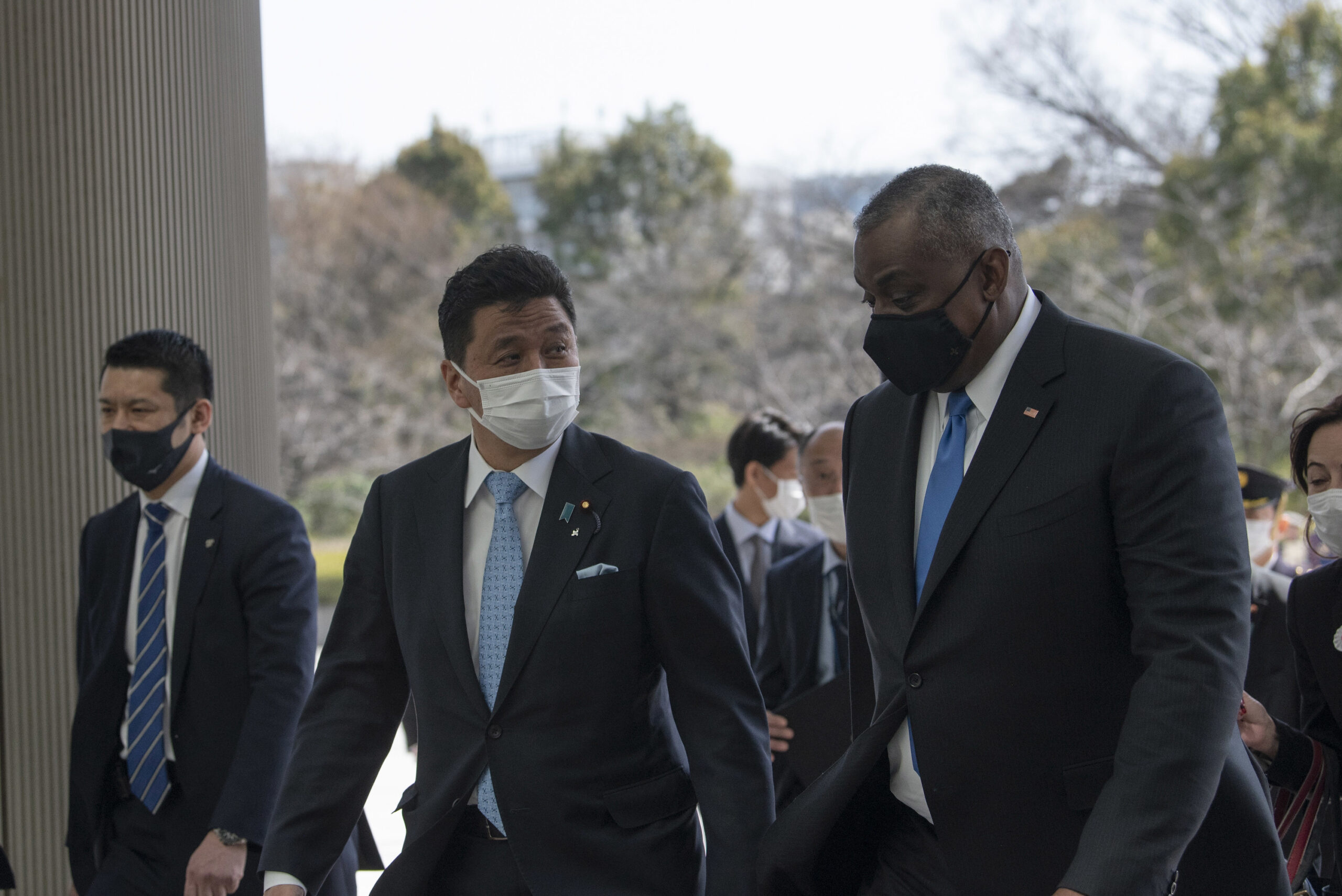DoD spokesman John Kirby: “Secretary Austin was pleased to receive a briefing about the space domain.”
WASHINGTON — Defense Secretary Lloyd Austin last week received a detailed briefing on DoD space programs and national security threats in the space domain. This was Austin’s first high-level briefing on space issues since taking office.
“Secretary Austin was pleased to receive a briefing about the space domain,” Defense Department spokesman John Kirby said in a statement to SpaceNews.
Kirby said he could not comment on the specific matters discussed at the March 25 meeting but noted that Austin “understands the importance of this domain to our national security.”
Austin’s briefing was led by John Hill, who is performing the duties of assistant secretary of defense for space policy. In attendance — some in person and some via video teleconference — were senior officials from the U.S. Space Force, U.S. Space Command and the National Reconnaissance Office.
The briefing was intended to bring Austin up to date on space programs, the structure of the national security space enterprise and the challenges the United States faces in the space domain, according to several sources.
The subject of China’s technological advances and space ambitions also were discussed, these sources said.
The Biden administration has made technological competition with China a cornerstone issue that will drive investments and policy decisions. Austin this month stood up a “China task force” of senior officials who will be providing recommendations on how to meet the China challenge.
In written testimony to the Senate Armed Services Committee for his confirmation hearing, Austin noted that the “strategic environment continues to evolve rapidly, especially as it applies to space.” He said as defense secretary he would support a national defense strategy that addresses the “continued growth of adversary space and counterspace capabilities.” Chinese and Russian space activities, Austin added, “present serious and growing threats to U.S. national security interests.”
Earlier this month Austin and Secretary of State Antony Blinken traveled to the Indo-Pacific region where U.S. allies Japan and South Korea are growing increasingly concerned about China’s expansive maritime claims as well as its technological advances in space and other areas.
Blinken said in a speech last month that United States should “engage all countries, including Russia and China, on developing standards and norms of responsible behavior in outer space.”
U.S. military commanders in the Indo-Pacific region have called for greater investments in advanced technologies, including space systems, to deter and counter China. Commanders worry about Chinese capabilities to disrupt U.S. satellites like GPS and systems that provide critical communications services.
As he prepares to submit his first budget request to Congress, Austin will have to balance combatant commanders’ requests for more resources against fiscal pressures and calls to reduce military spending.
